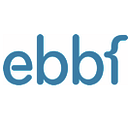Karryn Olson and Dimity Podger from Australia share this timely article that offers key elements of #Leadership that can lead to the #RegenerativeFuture that we so need.
Humanity is called towards monumental changes in order to preserve life, and it is apparent that the current concepts of leadership are not adequate for the transformation required of us.
Dr. Dimity Podger (a career leadership development professional) and Karryn Olson (Coach, mentor and resource for micropreneurs working from a regenerative paradigm) have been deeply inquiring into this question: How do we evolve our concepts around what leadership is — so that each of us, and humanity, can develop the capabilities to co-create with others and the living systems in which we are embedded, into perpetuity?
We developed three premises
- Co-Creation
- Co-Evolution
- Inherent Nobility
and corresponding areas of inquiry as part of the our exploration.
Each of the three premises offers a facet for inquiry, but they are not separate. Indeed, each illuminates new ways of seeing the other premises more fully. Thus, together, we hold the three as a system, and they serve as a prism to illuminate and evolve our understanding of the leadership required of us today.
This article shares our first premise, Co-Creation, and invites you to join us in this inquiry.
Part two introduces the premise of Co-Evolution, and part three the premise Inherent Nobility. Visit Part two Co-evolution here.
By and large, people in leadership positions get paid to work with others in the organization to deliver results. But what if this focus on doing good work, especially in the face of today’s myriad converging crises, is actually at odds with the shifts we really want to be part of?
What if the more powerful approach is asking: “Who do I, and my organization need to become in order to serve the magnitude of transformation towards which humanity is called?”
This is the potent work we do in Evolving Leadership, a 12-week initial exploration of the much-needed, unfolding learning journey around this topic.
It’s not for the faint of heart, because it requires us to daylight and question foundational beliefs, asking questions like:
- Where did you learn your concepts of leadership?
- Or the qualities of a “great leader”?
- How do you know that those ideas are “correct” and appropriate now, in your context, in these threshold times?
We might wish to avoid these questions, because they may lay bare the fact that our ideas about leadership are outdated or incomplete.
The power and promise in this, though, is that the personal development required through this inquiry opens the opportunity to then uplevel our understanding of the evolving nature of leadership and how we embody that through new ways of being and acting.
And so here’s the big question: What if your leadership were grounded in a regeneration? Not the diluted, greenwashed, buzzword-of-the-day version that is getting thrown around nowadays, but a rigorous approach that requires you to develop yourself for more profound, rewarding, and systems-actualizing effects.
This is vulnerable work. It invites us to compost Western styles of leadership. It also requires us to step into new ways of being and acting. It necessitates rocking the boat, because we have to make time and resources available for this consciousness-elevating, paradigm-shifting “Indirect Work” (as Carol Sanford terms it), and communicate the value of it to our colleagues in our workplace. Perhaps most threatening, it may challenge us to see and embrace the fact that our highest contribution (or our organization’s) may look different than the role we have been taking on to date. What then?
If you are sensing that profound evolution is required of you, are you well-resourced for that type of intense growth?
Doing this on your own may be isolating and challenging. It certainly deprives you of the richness of the potential released when a group of people dedicated to the same profound inquiry comes together.
Evolving Leadership provides you a well held, brave container to explore provocative guiding inquiries like those shown; and practice embodying leadership grounded in a paradigm of regeneration — so that you can be well-resourced to make your contribution towards co-creating our regenerative future.
